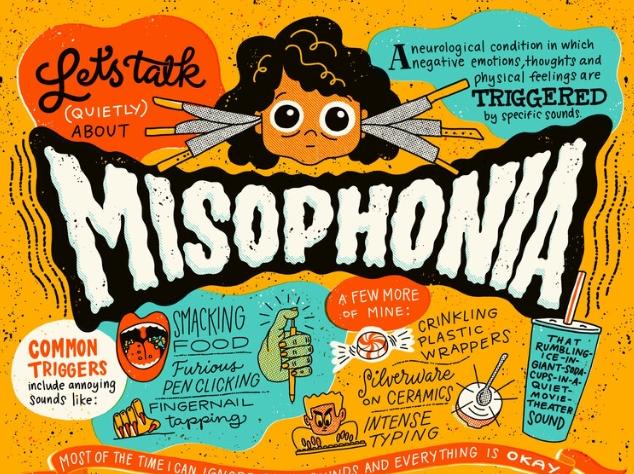Have you ever heard of someone who becomes angry about silly things such as faint noises, like the sound of breathing or eating?
Many people get upset when they hear these sounds, and this condition is called misophonia or selective sound sensitivity syndrome.
Misophonia is a hypersensitivity to sound, a disease that is not related to the ear but a nervous disorder coming from the brain. The symptoms appear from childhood between the ages of 9 to 13.
Psychiatrists classify it as a type of obsessive-compulsive disorder (OCD) or bipolar disorder (BD).
Causes of misophonia:
- Dysfunction of the auditory system in the brain
- Genetic disorders
- Tinnitus disease
Symptoms of misophonia:
- Anxiety, stress
- Anger, fear
- Desire to leave the place, discomfort
- Emotional disorder
- Suicidal thoughts
Misophonia causes a lot of complications, the most important of which are: cramping when eating with the family, a desire to quarrel with the source of the nuisance, whether physically or verbally, the desire to escape when not feeling comfortable, all of which lead to loneliness and isolation.
Treatment of misophonia :
This syndrome can only be treated psychologically or behaviorally:
- Exercise and yoga, because they calm the nerves
- The patient can use headphones or earplugs to get rid of annoying voices
- Stress is one of the most important causes of misophonia, so the patient should manage their time and sleep well
- The patient should also choose a quiet area to live
Image source:
Visit my campaign and get to know me.


